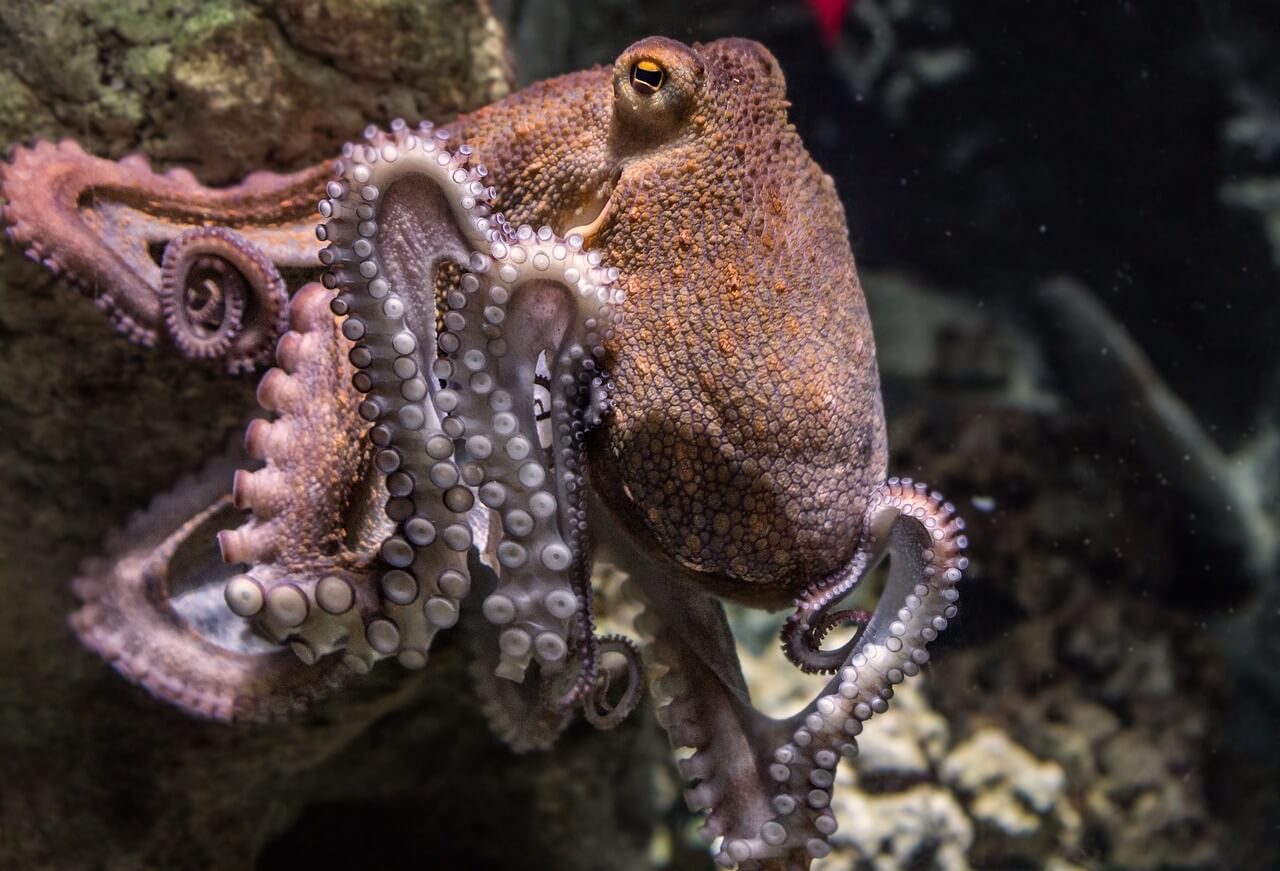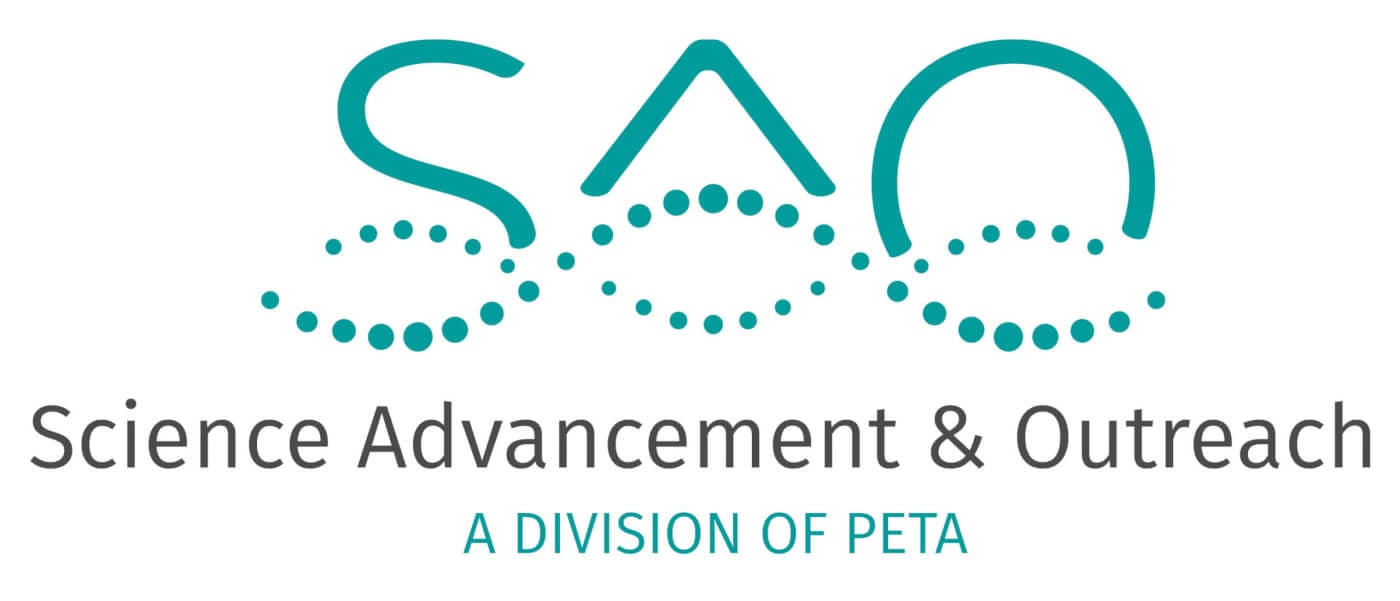Advancing Cephalopod Welfare: A Call for Comprehensive Guidelines
Written by Kati Bertrand
February 2024

The recent request for information (RFI) issued by the National Institutes of Health (NIH) (NOT-OD-23-176: Proposed Guidance to Assured Institutions on Cephalopod Care and Use) marks a significant step forward in providing cephalopods who are used in experiments with at least minimal standards of care. And although a little guidance is better than none at all, concerns have been raised regarding its adequacy to support the well-being of these complex individuals. On December 22, 2023, SAO and a coalition of animal protection organizations and cephalopod experts, submitted a joint comment detailing strategies for enhancing and broadening the suggested guidance.
Cephalopods, including octopuses and cuttlefish, exhibit remarkable cognitive abilities, demonstrating traits such as problem-solving, tool use, and even delayed gratification, which is viewed as a manifestation of intelligence in animals. The scientific community has accumulated substantial evidence highlighting the sophisticated nature of cephalopods, including their ability to feel pain and exhibit conscious behavior. As with other animals, this knowledge should logically and ethically prevent using them in experiments, but some experimenters are insisting on using them anyway, which necessitates clear oversight.
As it stands, the Proposed Guidance falls short of providing cephalopods with protections comparable to those afforded to vertebrate animals under the Public Health Service Policy on Humane Care and Use of Laboratory Animals. Unlike existing regulations, the guidance would not be mandatory, lacks clear definitions, and applies only to institutions with approved Animal Welfare Assurances.
Several countries and jurisdictions, including Australia, Canada, the EU, New Zealand, Norway, Switzerland, and the U.K., have recognized the need for specific regulations governing the treatment of cephalopods in experiments, yet the U.S. lags behind in providing comprehensive guidelines, and cephalopods aren’t covered by the federal Animal Welfare Act.
Although recent NIH initiatives, including the RFI and encouraging the use of the ARRIVE Essential 10 Checklist in publications, are a step forward, they still fall short. Together with the coalition of experts, we recommend that NIH collaborate with the National Academies of Sciences, Engineering, and Medicine’s Board on Animal Health Sciences, Conservation. Additionally, the proposed guidance should be strengthened, expanded, and clarified to ensure consistency across research institutions.
We are also calling for amending the Public Health Service Policy to explicitly include cephalopods within its scope and ensuring uniform oversight, reporting, and recordkeeping. This approach aligns with the original intent of Congress to establish statutory authority and recognition for the care of all animals, not only warm-blooded vertebrates, in laboratories.
Specific recommendations involve refining the Proposed Guidance to provide clearer expectations for institutions, addressing the unique welfare needs of cephalopods, and ensuring that all principles of the U.S. Government Principles for the Utilization and Care of Vertebrate Animals Used in Testing, Research, and Training are explicitly applied to cephalopods in research.
In conclusion, a more robust framework is needed to safeguard the welfare of cephalopods used in experiments. By adopting comprehensive guidelines and regulatory measures, the scientific community could prevent additional harm to cephalopods beyond what experimenters will undoubtedly inflict on these remarkable individuals.
